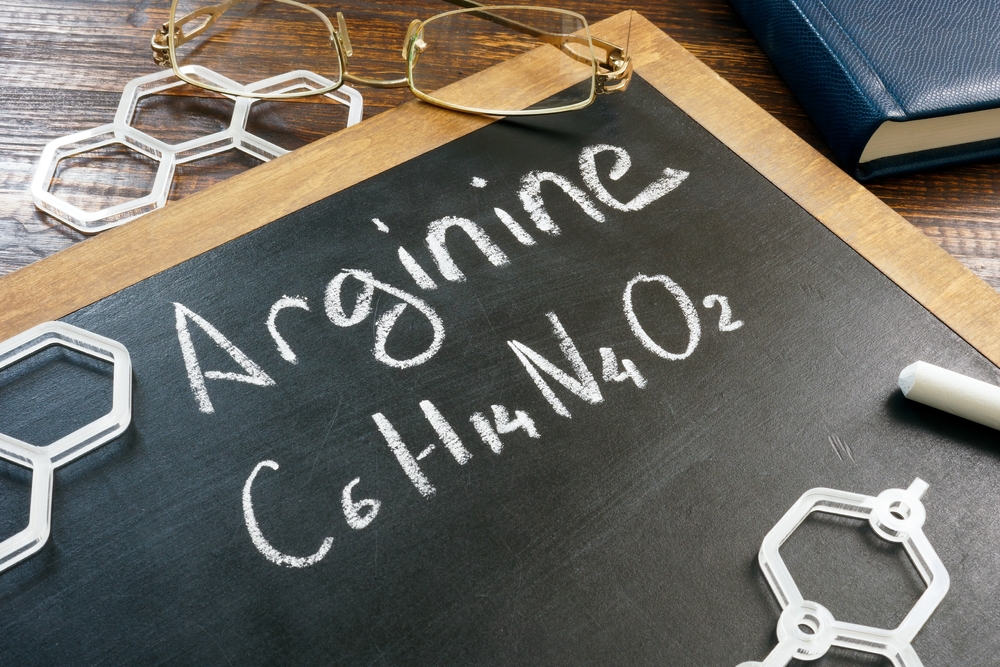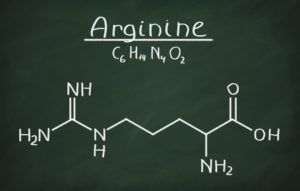

The Value of Arginine
- by Life Priority
- No Comments
- Post Views: 11
 Amino acids perform a dizzying array of functions in the body. They can link together in long chains to form various kinds of proteins, such as enzymes (acetylcholinesterase, e.g., which breaks down the acetylcholine molecule), hormones (insulin, e.g., which regulates blood glucose levels), or structural proteins (collagen, e.g., which gives strength to skin, cartilage, and bone). They can also be converted to amino acid derivatives, such as serotonin, an important neurotransmitter that is derived
Amino acids perform a dizzying array of functions in the body. They can link together in long chains to form various kinds of proteins, such as enzymes (acetylcholinesterase, e.g., which breaks down the acetylcholine molecule), hormones (insulin, e.g., which regulates blood glucose levels), or structural proteins (collagen, e.g., which gives strength to skin, cartilage, and bone). They can also be converted to amino acid derivatives, such as serotonin, an important neurotransmitter that is derived
from tryptophan.
Arginine helps preserve kidney function, boost the immune system, increase insulin sensitivity, promote cardiovascular health, and facilitate erections.
Without question, amino acids are vital for normal body functions and good health – either as individual molecules or in the form of proteins (about 20 different amino acids constitute the tens of thousands of different proteins in our bodies). Some amino acids play more prominent roles than others. Consider, for example, the functions that arginine fulfills in the body. Arginine helps, among other things, to preserve kidney function, boost the immune system, increase insulin sensitivity, and promote a healthy cardiovascular system – and it even helps men to achieve and maintain erections.
Arginine Reduces Pulmonary Blood Pressure
Studies have demonstrated that oral supplementation with arginine offers substantial improvements in hemodynamics in patients with congestive heart failure (a decline in the heart’s ability to pump blood). Recently, the first study to assess the benefits of oral arginine in patients with pulmonary hypertension was performed.1
In the study, 19 patients (4 men and 15 women, average age 49 years) with clinically diagnosed pulmonary hypertension were evaluated to determine the effect of oral arginine supplementation on blood flow. The patients were given a single dose of arginine (0.5 g per 10 kg of body weight – equivalent to 3.5 g for a 70-kg, or 155-pound, person), and their cardiovascular response was measured over the next two hours.
Modest but significant differences were observed in pulmonary blood pressure, which decreased from 53 to 48 mm Hg (millimeters of mercury, the standard unit of measure for blood pressure). In addition, the researchers observed a 16% decrease, on average, in the resistance to blood flow in the arteries of the lungs. Thus, blood flow was substantially improved. Importantly, no changes in heart rate were detected between the treatment and control groups.
Arginine Increases Exercise Capacity
The same group of patients also participated in a separate study to measure exercise capacity (except for three individuals who could not tolerate the maximum exercise level, so 16 patients were left). For one week, nine patients in the treatment group supplemented their diets with 0.5 g of arginine per 10 kg of body weight three times daily (equivalent to 10.5g/day for a 155-pound person), and the other seven patients took placebo. After one week of this regimen, the researchers measured exercise capacity in all the patients by assessing their performance on a stationary bicycle: the patients pedaled at 55 rpm for one minute, and the work rate was increased incrementally until they reached their maximum exercise capacity.
One week of arginine supplementation increased peak oxygen volume by 8% and exercise capacity by 12%.
One of the measurements used in this study was the volume of oxygen consumed by each patient during a one-minute interval (referred to as the peak oxygen volume). Following arginine supplementation for one week, patients increased their peak oxygen volume by 8%, from 831 to 896 ml/min (milliliters per minute). In addition, the patients’ exercise capacity increased by 12%, meaning that they were capable of cycling at a higher resistance level than those in the control group (in whom both of these experimental measures remained unchanged during the study).
To Your Health! Life Priority Inc
Sign up for emails from OneHeartNetwork.com:
By providing your email address, you are agreeing to our privacy policy.
RECOMMENDED


Tribute To Durk Pearson and Sandy Shaw
 Amino acids perform a dizzying array of functions in the body. They can link together in long chains to form various kinds of proteins, such as enzymes (acetylcholinesterase, e.g., which breaks down the acetylcholine molecule), hormones (insulin, e.g., which regulates blood glucose levels), or structural proteins (collagen, e.g., which gives strength to skin, cartilage, and bone). They can also be converted to amino acid derivatives, such as serotonin, an important neurotransmitter that is derived
Amino acids perform a dizzying array of functions in the body. They can link together in long chains to form various kinds of proteins, such as enzymes (acetylcholinesterase, e.g., which breaks down the acetylcholine molecule), hormones (insulin, e.g., which regulates blood glucose levels), or structural proteins (collagen, e.g., which gives strength to skin, cartilage, and bone). They can also be converted to amino acid derivatives, such as serotonin, an important neurotransmitter that is derived
from tryptophan.
Arginine helps preserve kidney function, boost the immune system, increase insulin sensitivity, promote cardiovascular health, and facilitate erections.
Without question, amino acids are vital for normal body functions and good health – either as individual molecules or in the form of proteins (about 20 different amino acids constitute the tens of thousands of different proteins in our bodies). Some amino acids play more prominent roles than others. Consider, for example, the functions that arginine fulfills in the body. Arginine helps, among other things, to preserve kidney function, boost the immune system, increase insulin sensitivity, and promote a healthy cardiovascular system – and it even helps men to achieve and maintain erections.
Arginine Reduces Pulmonary Blood Pressure
Studies have demonstrated that oral supplementation with arginine offers substantial improvements in hemodynamics in patients with congestive heart failure (a decline in the heart’s ability to pump blood). Recently, the first study to assess the benefits of oral arginine in patients with pulmonary hypertension was performed.1
In the study, 19 patients (4 men and 15 women, average age 49 years) with clinically diagnosed pulmonary hypertension were evaluated to determine the effect of oral arginine supplementation on blood flow. The patients were given a single dose of arginine (0.5 g per 10 kg of body weight – equivalent to 3.5 g for a 70-kg, or 155-pound, person), and their cardiovascular response was measured over the next two hours.
Modest but significant differences were observed in pulmonary blood pressure, which decreased from 53 to 48 mm Hg (millimeters of mercury, the standard unit of measure for blood pressure). In addition, the researchers observed a 16% decrease, on average, in the resistance to blood flow in the arteries of the lungs. Thus, blood flow was substantially improved. Importantly, no changes in heart rate were detected between the treatment and control groups.
Arginine Increases Exercise Capacity
The same group of patients also participated in a separate study to measure exercise capacity (except for three individuals who could not tolerate the maximum exercise level, so 16 patients were left). For one week, nine patients in the treatment group supplemented their diets with 0.5 g of arginine per 10 kg of body weight three times daily (equivalent to 10.5g/day for a 155-pound person), and the other seven patients took placebo. After one week of this regimen, the researchers measured exercise capacity in all the patients by assessing their performance on a stationary bicycle: the patients pedaled at 55 rpm for one minute, and the work rate was increased incrementally until they reached their maximum exercise capacity.
One week of arginine supplementation increased peak oxygen volume by 8% and exercise capacity by 12%.
One of the measurements used in this study was the volume of oxygen consumed by each patient during a one-minute interval (referred to as the peak oxygen volume). Following arginine supplementation for one week, patients increased their peak oxygen volume by 8%, from 831 to 896 ml/min (milliliters per minute). In addition, the patients’ exercise capacity increased by 12%, meaning that they were capable of cycling at a higher resistance level than those in the control group (in whom both of these experimental measures remained unchanged during the study).
To Your Health! Life Priority Inc


